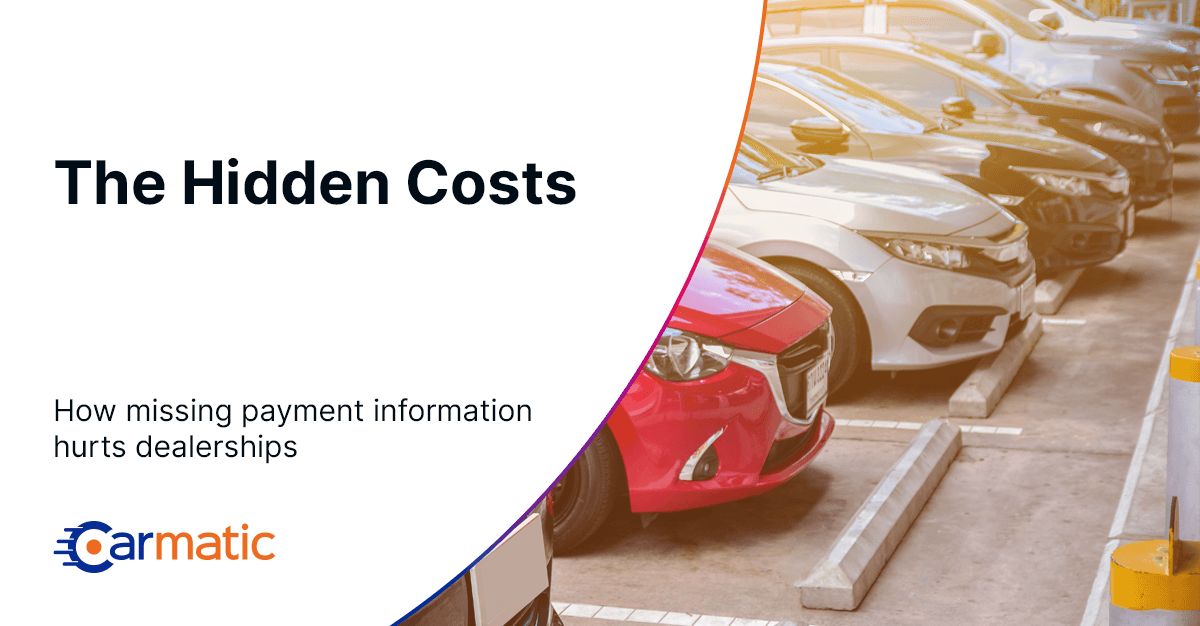The Hidden Costs
How Missing Payment Information Hurts Dealerships
In the digital age, transparency is not just valued; it's expected. This is especially true in the auto industry, where the financial commitment of buying a new car is significant. Customers expect quick, clear information about potential monthly payments, but when dealerships fail to provide this promptly, it can lead to a ripple effect of trust issues and hidden costs that impact both the consumer and the dealership.
The Expectation of Instant Information
Today's consumers are accustomed to instant access to information. Whether it's same-day delivery for online shopping or real-time updates from news apps, the digital world has set a precedent for immediacy. This expectation transfers directly to the auto buying process. When potential buyers step into a dealership or explore options online, they are not just looking for a new car; they are looking for a transparent and efficient purchasing experience.
The Impact of Missing Payment Details
Consumer Frustration and Decision Fatigue: Delayed payment information can significantly frustrate potential buyers. A car purchase is often the second-largest financial decision for many individuals, next to buying a house. When consumers can't get immediate clarity on what their financial commitments would look like, it leads to decision fatigue and a tainted shopping experience. This frustration may drive them to seek other dealerships that offer more transparent and faster services.
Erosion of Trust: Trust is the cornerstone of any customer relationship. In auto sales, where dealings are often stereotyped as less than straightforward, the importance of trust cannot be overstated. When dealerships fail to provide prompt financial details, it reinforces negative stereotypes and erodes trust. This can be particularly damaging in a competitive market where loyalty is hard-won.
Loss of Sales: The immediate consequence of diminished trust is often a direct loss of sales. Consumers dissatisfied with the level of transparency and service might abandon transactions at a dealership in favor of one that provides clearer, quicker information. This not only impacts the bottom line through lost sales but can also affect dealership reputation through negative reviews and word of mouth.
Increased Operational Costs: Addressing customer dissatisfaction and rectifying trust issues require resources. Dealerships must invest in training and perhaps in upgrading IT systems to provide real-time financial data. While these are beneficial investments, they are often unplanned expenditures driven by negative feedback, representing a hidden cost to the business.
Compliance and Legal Risks: In many regions, there are stringent regulations governing the transparency of financial terms in auto sales. Delays in providing accurate payment information can lead to compliance issues, with potential legal consequences and fines. This not only adds to the dealership's costs but can also tarnish its public image.
Solutions for Enhancing Transparency
To mitigate these issues, dealerships can adopt several strategies:
Integrated Technology Solutions: Implementing advanced CRM systems and financing tools that can provide real-time payment calculations based on personal credit and other factors. This technology can help streamline the sales process and improve customer satisfaction.
Training and Development: Regular training sessions for sales teams can ensure that all personnel are equipped to handle financial inquiries effectively and efficiently. This training should emphasize the importance of transparency and how it relates to customer trust.
Customer-Centric Processes: Designing sales processes from the customer's perspective can help identify potential pain points in the buying experience. Simplifying these processes to make financial information readily available can enhance overall satisfaction.
Feedback Mechanisms: Establishing robust channels for customer feedback on the buying experience allows dealerships to adjust practices in real-time, improving service and transparency.
Conclusion
In conclusion, the ability to provide instant, accurate payment information is not just a convenience—it's a critical component of modern auto retail that impacts consumer trust and dealership credibility. By prioritizing transparency and responsiveness, dealerships can avoid the hidden costs associated with delayed financial disclosures and build lasting relationships with their customers. In the era of digital retail, being upfront about costs is not just good ethics—it's good business.
